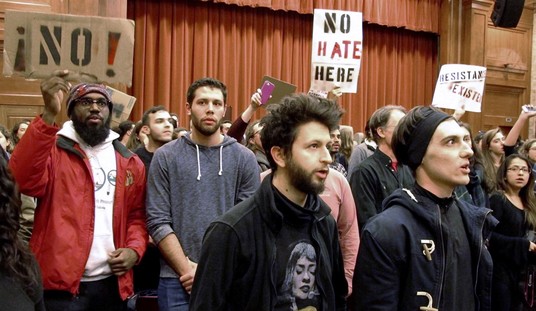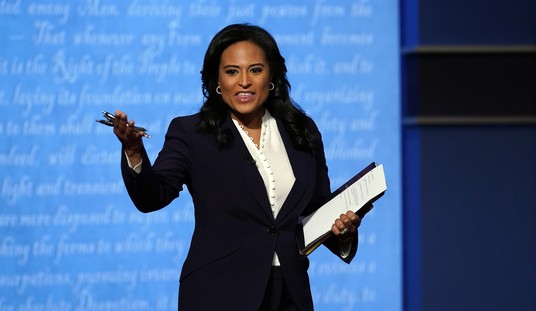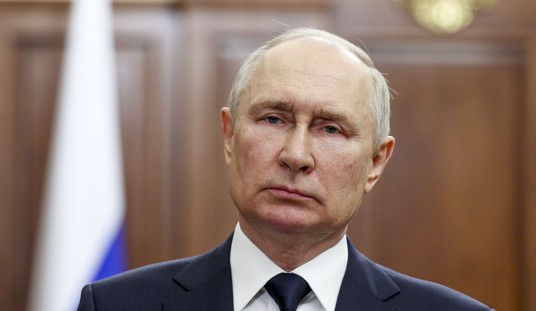The Syrian opposition in the civil war has increasingly fallen under domination by al-Qaeda, but the problem isn’t limited to that nation, either. First, NBC reports on a series of car-bombings in Damascus by rebels, reported by Richard Engel, who also notes that this has come to mean al-Qaeda. Rebels also kidnapped several Red Cross/Red Crescent aid workers in an ambush north of Damascus:
Visit NBCNews.com for breaking news, world news, and news about the economy
The BBC reported shortly afterward that three of the six Red Cross workers were immediately released, along with one of the Red Crescent volunteers. The ambush might either have been a mistake by the kidnappers, or perhaps they decided they only needed a couple of hostages at a time.
The influence and strength of AQ has grown in Yemen as well. The group felt strong enough to directly attack the US and Yemen militaries at a post they claim is used to direct drone strikes on AQ targets:
The Yemen-based branch of al Qaeda said on Monday that its attack on a Yemeni army base last month targeted an operations room used by the United States to direct drone strikes against militants, and threatened more such assaults.
Dozens of militants stormed and captured the headquarters of the Yemeni army’s Second Division in the eastern city of al-Mukalla on September 30 and took some military personnel hostage. Military officials said four Yemeni soldiers were killed and nine wounded in a counter-strike to retake the base. …
“The Mujahideen have directed a harsh blow to one of these headquarters,” it said in a message posted on Shumukh al-Islam, an Islamist website, referring to the September 30 attack.
“Such joint security targets, which participate with the Americans in their war on the Muslim people, are a legitimate target for our operations, and we will puncture these eyes that the enemy uses.”
It said that dozens of officers were killed in the three-day assault and the operations room was destroyed. AQAP made no mention of any Americans present in the facility and there were no reports of foreigners killed in the attack.
So far, no one is confirming or denying the claims made in this statement. It’s impossible to ignore what is happening in Iraq, though, as AQ has surged back to power in the western part of the country, allowing the network to support jihadist efforts in Syria while declaring war on Iraqi Shi’ites. ABC News reports that al-Qaeda has “come roaring back” ever since the Obama administration failed to secure a new status-of-forces agreement that kept counter-terrorist units where they were badly needed:
Al-Qaida has come roaring back in Iraq since U.S. troops left in late 2011 and now looks stronger than it has in years. The terror group has shown it is capable of carrying out mass-casualty attacks several times a month, driving the death toll in Iraq to the highest level in half a decade. It sees each attack as a way to cultivate an atmosphere of chaos that weakens the Shiite-led government’s authority.
Recent prison breaks have bolstered al-Qaida’s ranks, while feelings of Sunni marginalization and the chaos caused by the civil war in neighboring Syria are fueling its comeback.
“Nobody is able to control this situation,” said Ali, who watches over a Sunni graveyard that sprang up next to the hallowed Abu Hanifa mosque in 2006, when sectarian fighting threated to engulf Iraq in all-out civil war.
“We are not safe in the coffee shops or mosques, not even in soccer fields,” he continued, rattling off some of the targets hit repeatedly in recent months.
The pace of the killing accelerated significantly following a deadly crackdown by security forces on a camp for Sunni protesters in the northern town of Hawija in April. United Nations figures show 712 people died violently in Iraq that month, at the time the most since 2008.
The monthly death toll hasn’t been that low since. September saw 979 killed.
The failure to negotiate an ongoing American presence in western Iraq might end up being the worst strategic mistake of the past five years since the original status-of-forces agreement (SOFA) signed by George W. Bush and Nouri al-Maliki. Maliki was open to extending the American presence in some significant form, but Barack Obama didn’t lift a finger to consolidate the strategic and tactical ground we had gained from the surge. Had we done so, the opposition in Syria might still be largely political rather than extremist, and we might have been able to control the departure of Bashar al-Assad for something more stable than the failed state that Syria will almost certainly become if Assad leaves now.








Join the conversation as a VIP Member